How Scenic Area LED Display Screens Are Redefining Visitor Experiences
In the modern era of smart tourism, scenic area LED display screens are becoming essential tools for enhancing visitor engagement and operational efficiency. Whether it’s a national park, historical site, or urban green space, these high-tech displays blend functionality with aesthetics to create immersive experiences. Unlike traditional static signs, these dynamic screens offer real-time updates, educational content, and interactive features that cater to both tourists and local communities.
Modern LED screens provide real-time information while complementing natural surroundings.
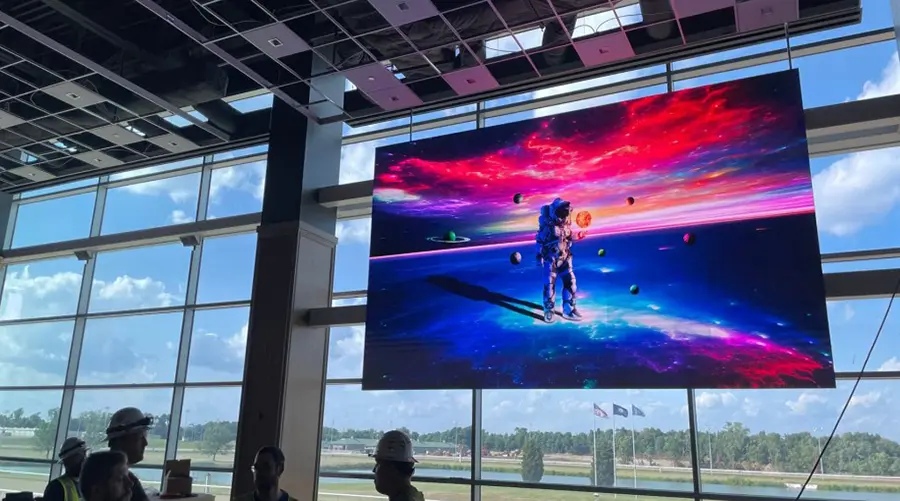
Outdoor digital signage is no longer a luxury—it’s a necessity for managing high-traffic areas. Here’s how these screens address key challenges in scenic zones:
Wayfinding Solutions: GPS-integrated maps and step-by-step navigation reduce visitor confusion.
Emergency Communication: Instant alerts for weather warnings or restricted access zones.
Educational Content: Interactive exhibits about local flora, fauna, and cultural heritage.
Revenue Opportunities: Sponsored advertisements or ticket promotions for nearby attractions.
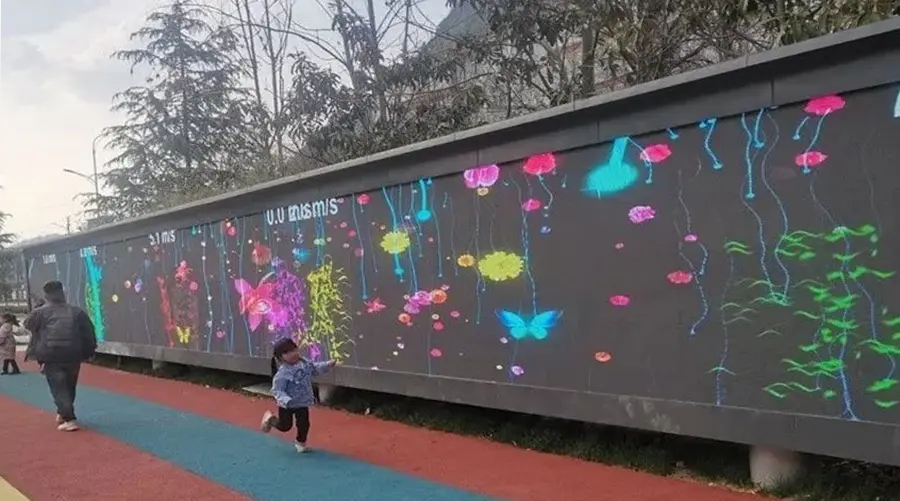
While traditional uses like weather updates and event schedules are common, forward-thinking installations are pushing the boundaries of what outdoor displays can achieve:
Modern scenic area LED displays are now equipped with IoT sensors and solar-powered systems. For example:
Live camera feeds of endangered species in their natural habitats.
Real-time air quality and soil moisture statistics for conservation efforts.
Guided meditation sessions inspired by the surrounding landscape.
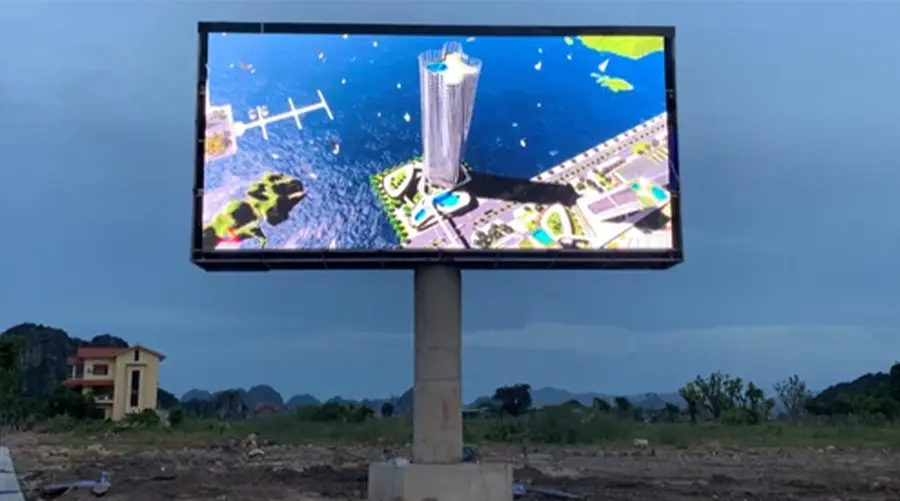
In historical sites, digital screens act as "time portals," offering 3D reconstructions and AI-driven narratives. For instance:
3D projections of ancient civilizations at archaeological sites.
Virtual historians answering visitor questions via AI avatars.
Multilingual poetry animations in historical calligraphy styles.
The latest advancements in LED technology prioritize both performance and environmental responsibility:
| Feature | Description | Benefit |
|---|---|---|
| Self-Cleaning Coatings | Nanotech surface resists dust, bird droppings, and UV damage. | Reduces maintenance costs by up to 60% in high-traffic zones. |
| Adaptive Brightness | AI adjusts screen luminosity based on daylight and cloud cover. | Preserves nocturnal wildlife patterns while ensuring visibility. |
| Thermal Sensing | Monitors nearby temperatures to prevent overheating during heatwaves. | Ensures reliability in extreme climates without energy waste. |
Scenic area LED displays are now designed with circular economy principles in mind:
Recycled Materials: 80% post-consumer aluminum and biodegradable packaging.
Energy Recovery: Heat from screens powers nearby lighting systems.
Modular Components: Individual parts can be upgraded or replaced, reducing waste.
A notable example is a national park in Norway that uses wind turbine energy to power its entire network of LED screens, achieving a 45% reduction in carbon emissions annually.
While the initial investment in outdoor digital signage can be significant, the long-term benefits often justify the cost:
Upfront Cost: $1,200–$3,500 per square meter, depending on customization.
Maintenance Savings: 50% reduction in printed materials and sign replacements.
Revenue Streams: Sponsored content slots or AR experience ticketing.
A case study from a UNESCO World Heritage Site demonstrated a 22% increase in visitor satisfaction and a 15% rise in ticket sales after implementing interactive LED-based guides.
The evolution of scenic area LED displays is accelerating, with several emerging technologies set to redefine the industry:
Transparent OLED screens are now being integrated into glass structures, allowing for unobstructed views while delivering information. Flexible displays can wrap around trees, rocks, or architectural features, creating seamless visual experiences.
Advanced analytics tools track foot traffic patterns, dwell times, and visitor preferences. This data helps optimize screen content, adjust staffing levels, and improve overall visitor flow.
Voice recognition technology allows visitors to ask questions or request information hands-free, enhancing accessibility for all users.
Selecting the appropriate LED display system depends on several factors:
Location Requirements: Weather resistance (IP66+ rating) for outdoor durability.
Brightness Levels: 5,000–10,000 nits for visibility in direct sunlight.
Customization Options: Modular designs to fit unique architectural or natural settings.
Connectivity: Wi-Fi, 5G, or satellite links for remote management.
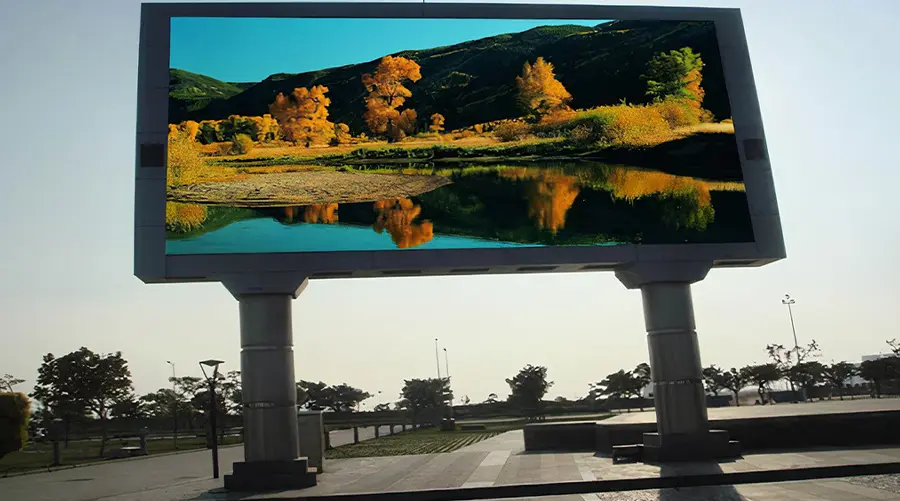
Let’s explore how different locations have leveraged scenic area LED displays to enhance their offerings:
Yellowstone implemented a network of interactive LED screens to provide real-time wildlife tracking, geothermal activity updates, and guided tour schedules. Visitor engagement increased by 30%, and staff reported fewer inquiries about trail conditions.
Kyoto’s gardens used AR-enhanced LED screens to showcase seasonal flower displays and historical garden design principles. The screens also featured multilingual poetry readings, attracting a 25% increase in international visitors.
As technology continues to evolve, scenic area LED display screens will play an even greater role in shaping the future of tourism. From real-time data sharing to immersive storytelling and sustainable design, these screens are not just tools—they’re gateways to deeper connections between people and the natural world. By adopting innovative solutions today, scenic areas can ensure they remain relevant, efficient, and inspiring for generations to come.
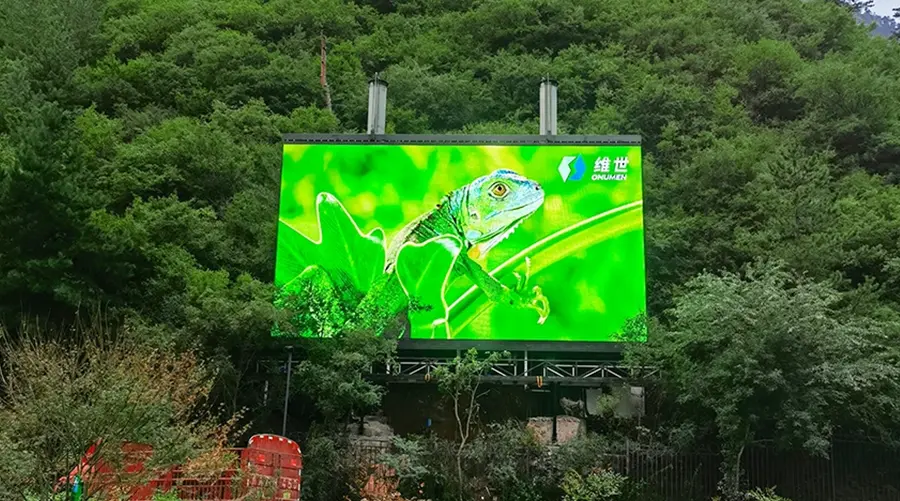
Hot Recommendations
Hot Products
Get a Free Quote Instantly!
Talk to Our Sales Team Now.
If you are interested in our products, please contact us promptly
Reach out to our sales team to explore customized solutions that perfectly meet your business needs and address any questions you may have.
Email Address:info@reissopto.comFactory Address:Building 6, Huike Flat Panel Display Industrial Park, No. 1, Gongye 2nd Road, Shiyan Shilong Community, Bao'an District, Shenzhen city , China
whatsapp:+8615217757270